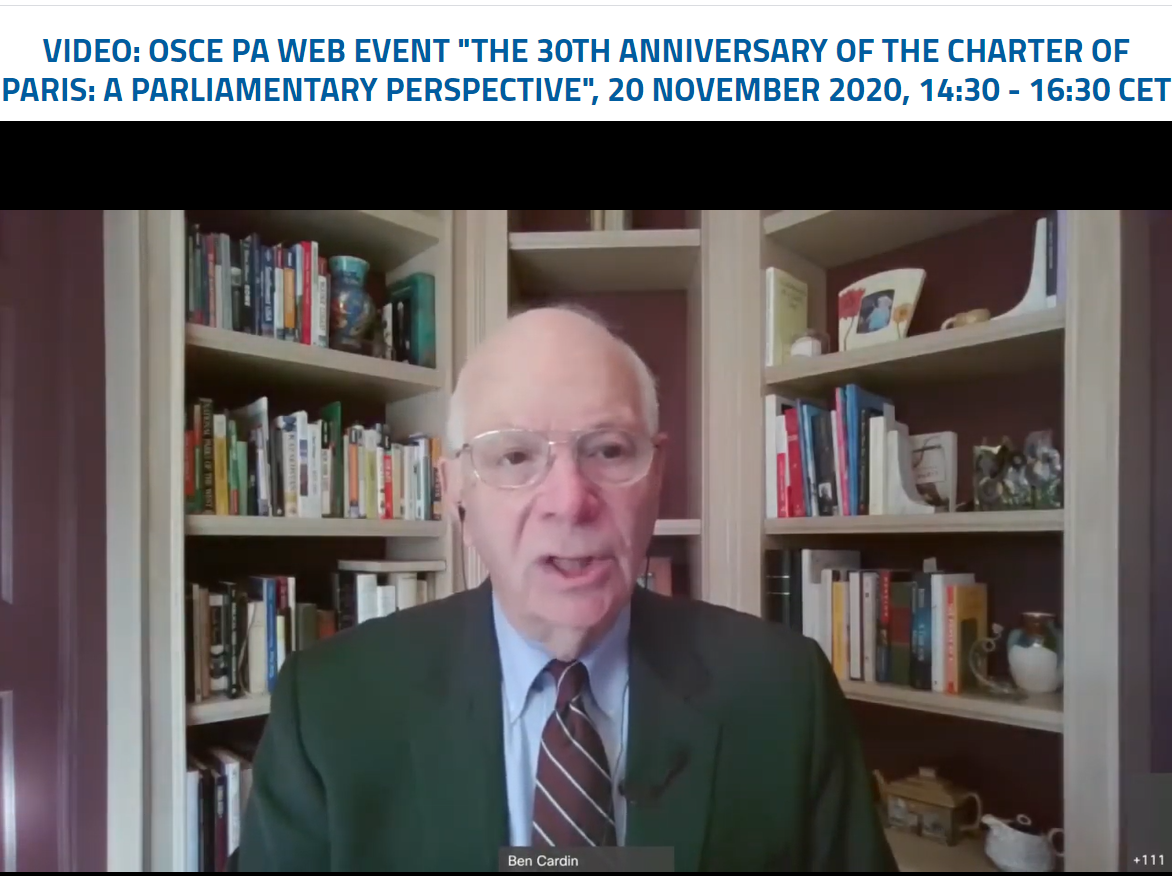On November 20, the OSCE Parliamentary Assembly (OSCE PA) and the French Delegation to the OSCE PA hosted a commemorative event celebrating the 30th anniversary of the Charter of Paris for a New Europe. Speakers reflected on the momentous document and discussed how to the OSCE can continue to provide value within today’s complex international framework.
The Charter of Paris was signed by 34 heads of state and government during a Summit of the Conference on Security and Cooperation in Europe (CSCE) in the French capital from November 19 to 21, 1990. The political agreement charted a path forward following Cold War confrontation and ushered in a new era as states made an unprecedented commitment to domestic individual freedoms, democratic governance, human rights, and transnational cooperation.
The agreement led to the institutionalization of the CSCE as well as the regularization of its meeting, setting the stage for the transformation of the ongoing conference to an organization, the OSCE, in 1995. This included the founding of the Parliamentary Assembly in 1991.
As the Charter of Paris turns 30, speakers reflected on its history and expression of hope for unity, stability and peace – goals which seemed attainable at the time but appear more distant today. Ann Linde, the Minister for Foreign Affairs of Sweden and incoming OSCE Chairperson-in-Office, stressed the OSCE and OSCE PA’s critical role in resolving challenges that threaten the OSCE region’s collective security, such as Russia’s violation of Ukraine’s territorial integrity and the post-election crackdown in Belarus.
OSCE PA President George Tsereteli said, “it is clear that we as politicians and parliamentarians need to work very hard.” He encouraged his colleagues to confront crises in democracy and strive to realize Charter of Paris commitments.
Participants of the event acknowledged the need to strengthen participating States’ commitments to the charter’s ideals through cooperation and dialogue. These calls for action were within the context of current geopolitical conflicts, as well as an effort to find ways to reach consensus with Russia.
“The OSCE has become the premier international organization promoting human rights… It is a proud record, but it’s a record that can be improved. The OSCE needs to work on openness, access to non-governmental organizations. But the problem within the OSCE states today is principally noncompliance of the states with the principles, not the deficiencies in the organization itself,” said Helsinki Commission Ranking Member and OSCE PA Special Representative on Anti-Semitism, Racism and Intolerance, Sen. Ben Cardin.

“Every state can do better,” Cardin said. “So, let us on this 30th anniversary of the Paris Charter remember our mission to build, consolidate, and strengthen democracies as the only system of government of our nations. You cannot be neutral in democracy.”






